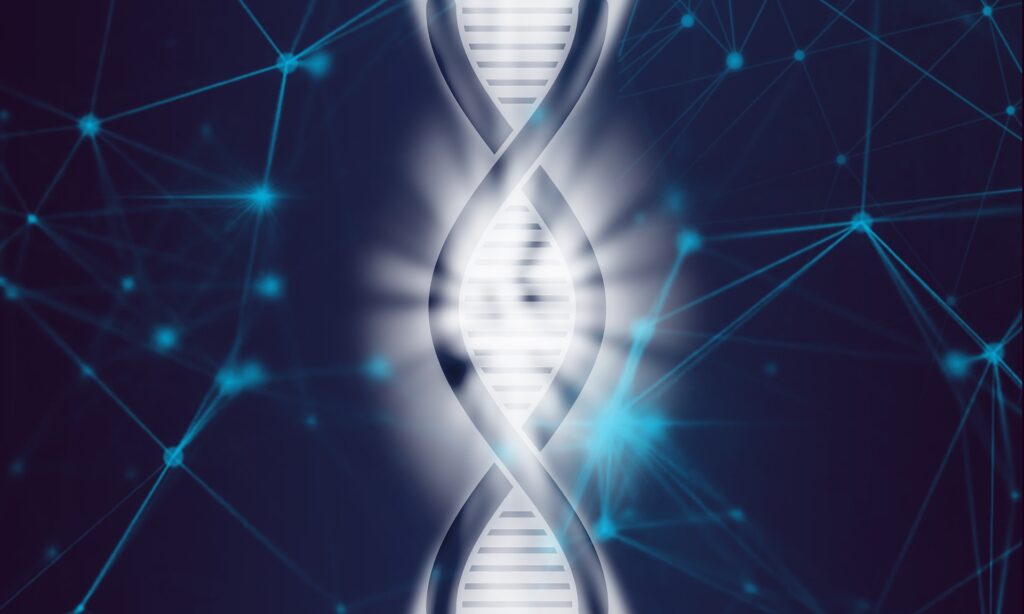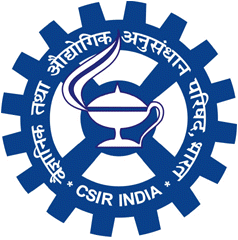Treatments Focus
The Importance of Genetic Counseling

Genetic counseling is a vital aspect of healthcare. It helps people and families to make smart decisions about their genetic health. It connects the understanding of our DNA with the decisions we make for our health and family planning.
Genetic counseling is like a friendly guide in the world of genes, combining medicine, science, and care. In this era of amazing scientific progress, where we’ve unlocked our genetic code, genetic counseling becomes even more important. This article explores the importance of genetic counseling. It sheds light on its role in identifying genetic risks. It also helps in making informed choices and offers solutions for genetic doubts.
Join us as we delve into the crucial world of genetic counseling and its extensive use
What is Genetic Counseling?
Genetic counseling is a service that helps individuals and families understand the genetic aspects of their health. It involves a trained professional, often a genetic counselor or a medical geneticist.
The genetic counselor provides information and support regarding genetic conditions, inheritance patterns, and the implications of genetic test results. Genetic counselors work with people to assess their risk of genetic disorders.
They explain the options for genetic testing. Helping individuals make informed decisions about their healthcare, family planning, and risk management. Their goal is to help people gain the knowledge that they need to make choices that match their values and preferences. While also addressing their genetic health concerns.
Reasons Genetic Counseling Is Important
Genetic counseling is important because it provides individuals and families with the knowledge and support to understand their genetic health. It is vital in helping individuals and families make sense of their genetic health.
It offers guidance for a healthier, more informed, and empowered future. It helps people to understand their genetic inheritance, it helps in assessing the risk of genetic conditions. And to make informed decisions about their genetic health,
When Is Genetic Counseling Recommended
Genetic counseling is recommended in a variety of situations. It helps people and families dealing with many different genetic problems. Here is an extensive explanation of when genetic counseling is recommended:
Family History of Genetic Conditions
If your family has a history of genetic disorders or if a particular genetic condition. Genetic counseling is recommended. This includes conditions like cystic fibrosis, Huntington’s disease, or various inherited cancers. Understanding your family’s genetic history.
This can help you assess your own risk and that of your future children when you have concerns about inheriting a genetic condition from your family. Genetic counseling is beneficial. This can help you understand the inheritance pattern and your risk.
Pregnancy Planning
Before becoming pregnant, genetic counseling is advised for couples who want to assess their risk. That is the passing on of genetic conditions to their offspring. This proactive approach allows them to make informed decisions about family planning. And also reproductive options and prenatal testing.
Pregnancy With Abnormal Screening
If prenatal screening or testing reveals potential genetic issues during pregnancy. Genetic counseling is recommended. The counselor can guide on the implications of these findings. They can also discuss further diagnostic options.
Recurrent Pregnancy Loss
Couples who have experienced many miscarriages or stillbirths should consider genetic counseling. This can help identify potential genetic factors contributing to this. This recurrent loss and explore solutions for future pregnancies.
Advanced Maternal Age
Women over the age of 35 and are pregnant have a higher risk of having a child with genetic conditions. Genetic counseling is often recommended in these cases. This is to assess and address these risks.
Consanguineous Relationship
Couples who are closely related by blood, such as first cousins, may have a higher risk of passing on recessive genetic conditions. Genetic counseling is advisable for these individuals. This is to understand their specific risks and potential options for family planning.
Unexplained Health
In cases where individuals have symptoms or a medical history that is challenging to diagnose. Genetic counseling can help identify potential genetic factors contributing to their health issues. This can lead to a more accurate diagnosis and tailored treatment plans.
Cancer Risk Assessment
Genetic counseling is crucial for individuals with a strong family history of cancer. It can assess their risk of hereditary cancer syndromes. Like BRCA mutations, Lynch syndrome, or other genetic factors that increase the likelihood of cancer. It also helps in devising personalized screening and risk-reduction strategies.
Carrier Testing
Couples planning to start a family can enjoy genetic counseling. This is especially true if they belong to certain ethnic groups with a higher risk of carrying specific genetic conditions. Carrier testing can identify whether one or both partners carry recessive genetic mutations. These mutations could be passed on to their children.
Personalize Health and Preventive Measure
People are now turning to genetic counseling to learn about their chances of getting common diseases, like heart problems, diabetes, or Alzheimer’s. This knowledge can help create personalized plans, like changing your lifestyle. It encourages getting early check-ups or specific treatments, all based on your genes. It’s like having a roadmap for your health that’s unique to you so that you can stay as healthy as possible.
Benefits of Genetic Counseling
The benefits of genetic counseling include
Understanding Genetic Risk
It helps individuals and families to know their genetic risks for inherited conditions. This provides clarity about the potential health challenges they may face. Knowledge of genetic risk helps individuals to make informed decisions. This decision influences their health, family planning, and medical care.
Many genetic conditions are more effectively managed when detected early. Recognizing genetic risks helps people to take proactive steps to reduce those risks. This can include lifestyle changes, regular screenings, and preventive treatments.
Informed Decision-Making
Genetic counselors empower people to make informed choices about genetic testing. It also helps in family planning and healthcare based on their unique genes. This leads to more personalized and effective healthcare strategies. And helps in preventing or managing genetic conditions and improves well-being.
Risk Management
It helps make plans to lower the risks of genetic issues. This enables individuals to take proactive steps for their health. This risk management involves getting checked early, changing your lifestyle, or taking preventive steps. For example, if someone has a high genetic risk for a certain cancer. They can go for regular checkups to catch it early. This improves the chances of successful treatment.
Emotional Support
Genetic counseling offers emotional and psychological support. This helps people and families cope with the emotional aspects of genetic information. That is due to its potential impact on their lives. Genetic counseling often involves discussing sensitive topics. This is like the risk of inherited conditions or the implications of genetic testing. This can create emotional stress and uncertainty.
Ethical and Moral Guidance
It helps in dealing with tough ethical and moral questions about genetics. Like the decisions about pregnancy and reproductive options. Genetic counseling involves sensitive and private information. Ethical support makes sure genetic counselors keep things private and confidential.
Personalized Healthcare
Genetic counseling makes healthcare plans that fit each person’s genes. This helps in the effect of personalized healthcare. In cases where individuals have already been diagnosed with certain conditions. Genetic information obtained through counseling can help optimize treatment plans.
The Evolving Role of Genetic Counselors
The role of genetic counselors and genetic testing in India has evolved in recent years due to advancements in genetics and technology. They focus on rare genetic disorders. Genetic counselors now play a broader and more integral role in healthcare. Their evolving responsibilities include:
- Counseling for common conditions: Genetic counselors are involved in addressing common complex conditions like heart disease, diabetes, and cancer. They help individuals understand their genetic risk. This provides them with guidance on prevention and management.
- Personalized medicine: Genetic counselors play a big part in making your medical care personal. They do this by looking at your genes and figuring out the best treatments for you. These treatments work well and don’t cause as many problems. It’s like getting a treatment plan that’s perfectly suited to your genetic code.
- Genetic testing: Genetic counselors assist in the selection and interpretation of genetic tests. They also help patients and healthcare providers make sense of complex genetic data.
- Cancer risk assessment: They specialize in hereditary cancer risk assessment. They also help identify individuals at higher risk and guide them through preventive methods. These methods are more frequent screenings or risk-reduction surgeries.
- Pharmacogenomics: Genetic counselors provide insights into how an individual’s genes may influence their response to medications. And ensuring safer and more effective drug choices.
- Patient advocacy: They act as patient advocates. They help individuals to understand the complex healthcare system. And help them understand their genetic rights and access appropriate testing and treatment.
- Research and education: Genetic counselors contribute to research and education. They stay updated about genetic advancements and share this knowledge with doctors and the public. It’s like passing on the latest information about genes.
- Ethical and legal guidance: They navigate ethical dilemmas related to genetic information. Ensuring patients’ genetic privacy and rights are protected.
- Telehealth: With the growth of telehealth, genetic counselors can reach more people. This is especially true for those in remote areas, providing access to genetic services and counseling.
- Mental health support: Genetic counselors offer emotional support. They address the psychological and emotional effects of genetic information on individuals and families.
Conclusion for the Importance of Genetic Counseling
Genetic counseling is an important part of modern healthcare. It served as a guiding light through the intricate world of our genes. Its importance cannot be overstated. It helps people to understand the complex world of genetic risks. By offering insights into our genetic codes, it enables informed choices. And also early detection and tailored healthcare, improving the quality of life. Genetic counselors are allies in the quest for personalized health. They offer emotional support, ethical guidance, and a bridge between genetic data and individual values.
Related Articles
Book an Appointment to understand how GenepoweRx can help you in treating
The Importance of Genetic Counseling
Meet The Doctors
Dr Kalyan Uppaluri
Dr Hima Challa
Your genetics … Your Test ... Your Health Success
It’s always the word of mouth that’s the best advice. Here are some of our…


Our Partners






Professional Partnerships
Government Association

